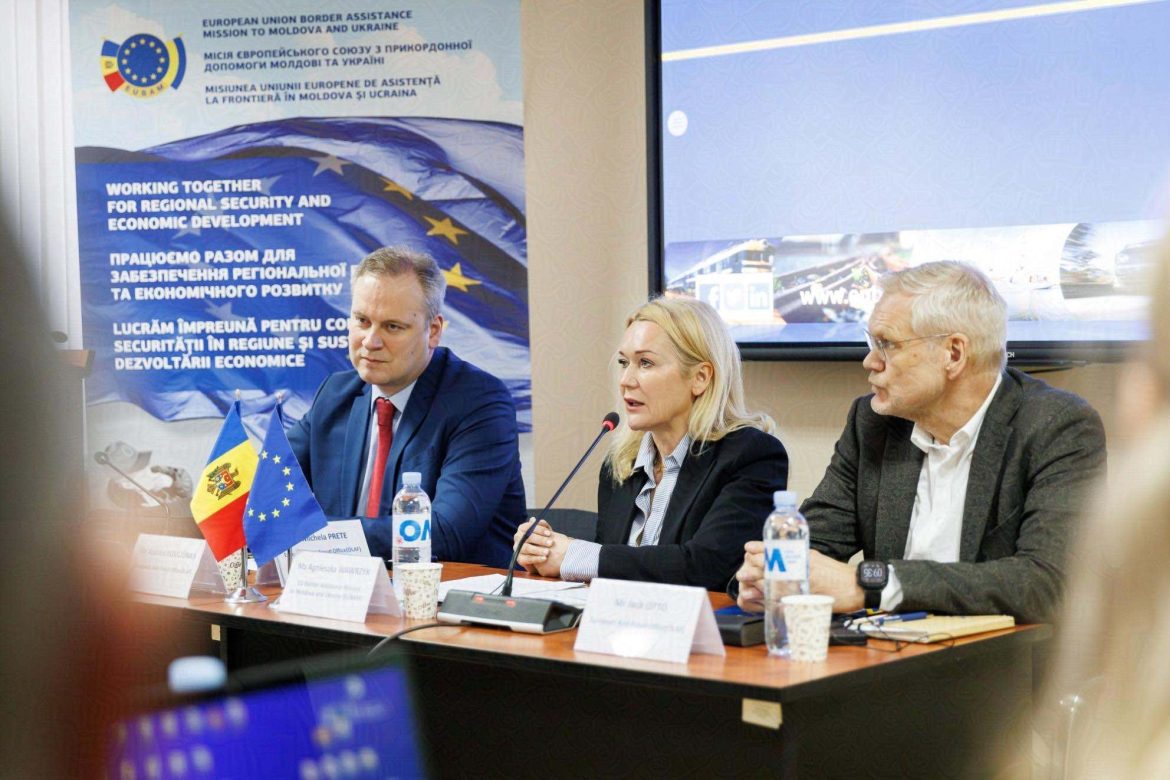On January 22nd, the European Anti-Fraud Office (OLAF), in partnership with the European Union Border Assistance Mission to Moldova and Ukraine (EUBAM) and Moldovan Customs, delivered a pivotal training session in Chisinau.
Held at the Moldovan Customs Training Centre, this high-level initiative was designed to enhance Moldova’s capacity to detect and combat the circumvention of European Union sanctions.
The training session brought together an array of experts and officials who explored the multifaceted challenges of enforcing international sanctions. By fostering collaboration and knowledge sharing, the event aimed to provide Moldovan authorities with the tools and strategies necessary to address increasingly sophisticated evasion tactics.
Sharing Expertise and Best Practices
Central to the training was the exchange of best practices and lessons learned in combating sanctions evasion. Experts from OLAF and other entities provided detailed insights into recognizing red flags and identifying suspicious activities that signal attempts to bypass sanctions. These discussions also included presentations on OLAF’s proven methodologies for detecting and preventing circumvention, equipping attendees with actionable knowledge.
Participants were introduced to advanced analytical tools and techniques designed for monitoring and enforcing sanctions. These tools enable authorities to map out suspicious trade routes, scrutinize transactions, and detect illicit activities. Through these insights, Moldovan authorities can strengthen their ability to combat illegal practices that threaten the integrity of international sanctions.
Ville Itälä: The Importance of Collaborative Training
Ville Itälä, Director-General of OLAF, emphasized the significance of such training initiatives in maintaining global stability and protecting EU values. He stated, “Sanctions are a vital tool in defending EU values and maintaining international order. Events like today’s training ensure that enforcement authorities gain the knowledge and tools to combat evasion and uphold the integrity of these measures.”
This statement underscores the broader mission of OLAF, which is to foster international collaboration in the enforcement of EU sanctions. By pooling resources and expertise, OLAF plays a critical role in strengthening global efforts to prevent the circumvention of these measures.
The Broader Role of OLAF
OLAF’s contributions extend beyond training. The office actively investigates cases of sanctions evasion, monitors trade flows, and shares intelligence with national and international partners. By identifying suspicious trade patterns and operators, OLAF has been instrumental in disrupting illegal activities that could undermine EU sanctions.
For instance, OLAF’s operations have resulted in the interception of over 237,000 items, including telecommunications equipment, electrical circuits, computer chips, and routing devices. These items, valued at over €3.3 million, were seized before they could be used to support Russia’s military capabilities. Additionally, OLAF has facilitated the seizure of 13 tons of chemical substances, further demonstrating its impact in safeguarding international security.
Strengthening Moldova’s Role
The successful training in Chisinau marks a significant step in bolstering Moldova’s role as a regional partner in upholding EU interests. By equipping Moldovan authorities with the knowledge and tools to combat sanctions evasion, this initiative enhances the country’s capacity to act as a frontline defender against illicit trade practices.
This training is part of OLAF’s ongoing commitment to building capacity among EU neighbors and partners. Strengthening these relationships not only protects the EU’s interests but also fosters greater regional stability and collaboration.
Looking Ahead
As sanctions remain a critical instrument in defending international norms, efforts to combat their circumvention must continue to evolve. The collaboration between OLAF, EUBAM, and Moldovan Customs exemplifies the power of partnership in addressing global challenges.
Through initiatives like the Chisinau training, Moldova is better positioned to safeguard its borders and contribute to the broader enforcement of EU sanctions.
By combining advanced tools, shared expertise, and coordinated action, the EU and its partners can ensure the integrity of sanctions and uphold the principles they are designed to protect. The Chisinau training is a testament to the importance of international cooperation in tackling complex issues, setting a strong foundation for future efforts to combat fraud and sanctions evasion.
Image: EUBAM via OLAF.


